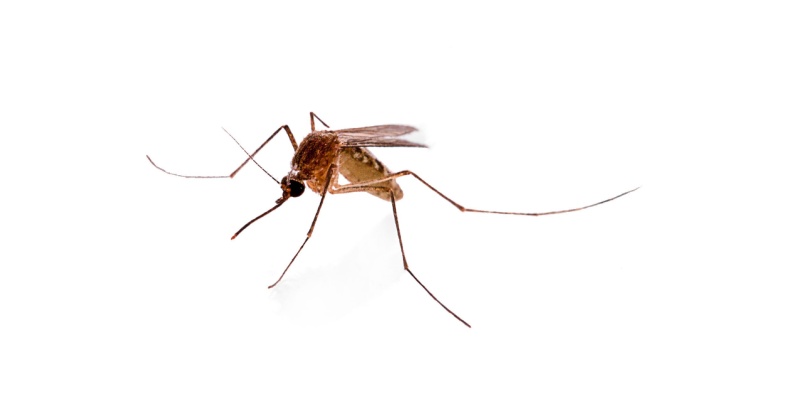As Indianapolis residents prepare for outdoor activities each spring and summer, questions about mosquitoes inevitably arise. At Trio Pest Control, we frequently hear similar concerns from homeowners throughout the area. We've compiled these common questions and provided straightforward answers to help you better understand and manage these persistent pests.
General Mosquito Questions
How many species of mosquitoes live in Indianapolis?
Indiana is home to approximately 60 mosquito species, with about 15 common species found in the Indianapolis area. The most prevalent include the Northern House Mosquito (Culex pipiens), Asian Tiger Mosquito (Aedes albopictus), and Inland Floodwater Mosquito (Aedes vexans).
Why do mosquitoes bite humans?
Only female mosquitoes bite humans, as they need blood proteins to develop their eggs. Male mosquitoes feed exclusively on plant nectar and don't bite. The females detect humans through carbon dioxide, body odor, heat, and movement.
When are mosquitoes most active in Indianapolis?
The mosquito season in Indianapolis typically runs from April through October, with peak activity in July and August. Most species are most active during dawn and dusk, though the Asian Tiger Mosquito bites aggressively during daylight hours.
How long do mosquitoes live?
Female mosquitoes typically live 2-3 weeks in summer conditions, while males usually live only about a week. However, some species can overwinter as adults in protected locations, emerging when temperatures warm in spring.
Mosquito Attraction & Prevention
Why do mosquitoes bite some people more than others?
Several factors influence mosquito preference:
- Blood type (Type O is generally more attractive)
- Carbon dioxide output (larger people and pregnant women produce more)
- Skin bacteria composition and body odor
- Lactic acid levels in sweat
- Certain clothing colors (especially dark colors)
- Body temperature
How quickly can mosquitoes reproduce around my home?
Mosquitoes can develop from egg to adult in as little as 7-10 days during warm weather. One female can lay 100-300 eggs at a time and may produce several batches during her lifetime. Just one forgotten bucket of water can produce hundreds of mosquitoes in a single generation.
What are the most common mosquito breeding sites around Indianapolis homes?
Common breeding sites include:
- Clogged gutters
- Bird baths
- Children's toys
- Plant saucers
- Tire swings
- Rain barrels
- Pet water bowls
- Poorly maintained swimming pools
- Tree holes
- Storm drains
How much water do mosquitoes need to breed?
Most container-breeding mosquitoes need just a bottle cap of water to lay eggs. The Asian Tiger Mosquito, common in Indianapolis, specializes in breeding in tiny water collections.
Health & Disease Concerns
What diseases do Indianapolis mosquitoes carry?
The primary disease concern in our area is West Nile Virus, with occasional cases reported each year. La Crosse Encephalitis occurs less frequently. While Eastern Equine Encephalitis is rare in humans, it occasionally affects horses in Indiana. Heartworm disease, transmitted by mosquitoes to dogs and cats, is also common in our area.
How common are mosquito-borne diseases in Indianapolis?
While the presence of mosquito-borne viruses is confirmed annually, human cases remain relatively low. Marion County typically reports a handful of confirmed West Nile Virus cases each year, though many mild infections go undiagnosed.
Should I worry about Zika virus in Indianapolis?
Currently, Zika virus is not established in Indiana. However, the Asian Tiger Mosquito, which can transmit Zika, is present in our area. Local transmission would require the virus to be introduced by an infected traveler and then spread by local mosquitoes—an unlikely but not impossible scenario.
Effective Control Methods
Do mosquito zappers work?
Electric bug zappers are largely ineffective for mosquito control. They primarily kill beneficial insects while having minimal impact on mosquito populations. Studies show that mosquitoes make up less than 1% of insects killed by typical bug zappers.
Are mosquito repellent plants effective?
Plants like citronella, lavender, and marigolds produce oils with mild repellent properties, but their effect is minimal unless the leaves are crushed to release these oils. These plants may slightly reduce mosquitoes in their immediate vicinity but won't protect your entire yard.
What's the most effective way to reduce mosquitoes around my home?
The most effective approach combines:
- Source reduction: Eliminating standing water where mosquitoes breed
- Barrier treatments: Professional application of residual insecticides to vegetation where adult mosquitoes rest
- Larvicides: Treating permanent water features with mosquito dunks or similar products
- Personal protection: Using EPA-registered repellents during outdoor activities
How long do professional mosquito treatments last?
Professional barrier treatments typically remain effective for 3-4 weeks, depending on weather conditions and rainfall. Most professional programs include regular reapplication throughout the mosquito season to maintain protection.
Trio Pest Control's Approach
At Trio Pest Control, our comprehensive mosquito management program includes thorough inspection, targeted treatments of resting and breeding sites, and ongoing monitoring to ensure effective control. Contact us today to learn how we can help make your Indianapolis property more comfortable and safer from mosquito-related concerns.
